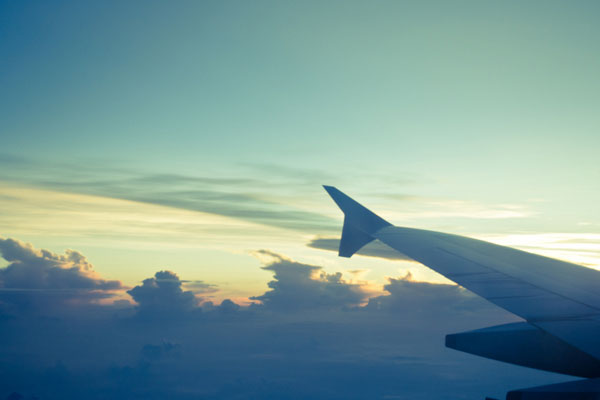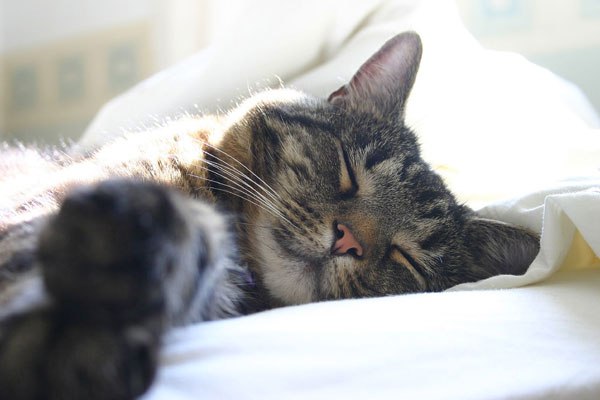Sleep well away from home and enjoy your vacation sans jet lag with a few simple tips and tricks.
If you’re going on vacation, chances are you want to have a good time, and sleep may not be your top priority.
But, getting quality rest can put a serious drag on your festivities, whether travelling for business or pleasure. A lack of sleep not only makes you physically tired, it affects your mood, motivation, memory and can even make your more susceptible to colds and other bugs.
Many of us assume we can just catch up on missed sleep once we’re home, but studies indicate that this may not be entirely true, and even one day of sleep deprivation can have big consequences. Rather than muddling through your next holiday half-awake, try incorporating some of these solutions to stay well-rested when traveling for a better experience.
6 Ways to Sleep Better During Vacations
We’ve put together six easy ideas and hacks designed to help you stay on top of sleep and enjoy your next vacation to the fullest. Try incorporating these into your routine if you tend to have sleep troubles away from home.
1. Plan a Sleep Schedule
Your internal sleep clock thrives on regularity, and sticking to fairly regular sleep and wake times can help prevent your body from going haywire. If you are only on vacation for a couple of days, try to stick to your normal patterns within an hour or so.
If you are vacationing for a week or more, then have a set sleep and wake time in mind that will allow you to do everything you want but still get in enough sleep. Making a conscious note of this can make it easier to wind down and rest.
Either way, it is important to give yourself plenty of time to sleep, especially the first night or two when you are still getting used to your surroundings. Try to turn in early if possible so you don’t feel too pressured to fall asleep fast (especially if you’re travelling on business or have an appointment the next day).
2. Mimic Your Home Environment
If you tend to have difficulty getting comfortable in a new environment or have kids with you, it can be helpful to pack a few items from your home sleep routine to make the transition easier.
This might be a favorite pillow, type of tea or slippers, or even an essential oil or room spray – whatever helps you get comfortable. For kiddos, their own pillows or a particular toy or book could help them sleep easier.
If you live in a noisy city and travelling to quiet one (or vice versa), a white noise machine (or app) or earplugs could also prove helpful. If there are particular shows or songs you like to wind down to in the evening, bring them along on a laptop or a tablet.
3. Prepare for Distractions
Whether you’ll be staying in a five star hotel or a friend’s couch, keep a small sleep survival kit in your suitcase that includes an eye mask and earplugs or headphones. If you are travelling long distance, a travel pillow can also be smart for catching a nap in planes or sleeping in cars.
You may never need the mask or earplugs, but if you wind up with shades that simply don’t block light or noisy neighbors, you’ll be glad you have these items on hand and it could just save you a restless night.
It can also be helpful to keep a couple of healthy, light bedtime snack options like nuts, milk, crackers or baby carrots in your hotel room so you aren’t battling hunger pangs late at night.
If you are particularly bothered by sound or light and are staying in a hotel, it can also be worthwhile to ask the concierge for a quiet or darker room at check-in.
4. Plan for Jet Lag

If you are travelling long-distance, jet lag is a top sleep stealer, but being prepared can help you minimize its effects. Jet lag is the name given to the phenomena that causes our sleep clocks to go off kilter when we quickly travel to new time zones. For the majority of people, effects are most noticeable in eastbound travel.
In addition to good sleep hygiene practices, there are a few potential hacks to beat jet lag given by experts and research:
Trick Your “Food Clock”
A 2008 report from Science details studies that have found animals’ sleep clocks synchronized to match food availability and eating schedules. Findings suggest that humans might also be affected by this biological function, meaning jet lag could be minimized with a 12 to 16 hour fast, then breaking the fast with a meal at the “new” normal breakfast time.
For example, say you are leaving on a flight one evening and landing in your new time zone at 2PM local time the next day. You might have a lunch after landing, then fast and have your next meal at the regular breakfast time the following morning and resume a normal eating pattern.
It’s also best to avoid eating before bed, not just to keep your sleep schedule on track, but to avoid acid reflux and indigestion.
Manipulate Light
Researchers from NASA who help astronauts manage fatigue say that light is the most fundamental factor when it comes to reducing jet lag. They suggest if you are travelling east to keep your light exposure early to advance your sleep clock, but to keep light exposure late if travelling west to set back your sleep clock.
For example, if your eastbound flight leaves at night, they suggest wearing sunglasses all through the flight to minimize light, sleep if possible, and continue wearing sunglasses until late morning in the new time zone. If your eastbound flight leaves in the morning however, you would want to take in light throughout the flight and the day you land and skip the sunglasses.
Take Sleep Boosting Supplements
Melatonin, or melatonin-rich tart cherry juice, is often cited as helpful for inducing drowsiness, which can help you adjust to a new time zone. It may not work for everyone, though (and it’s always wise to consult with your doc before starting new supplements).
Researchers from the Rush University Medical Center take it step further with a system designed to adjust your natural biological rhythms. They suggest identifying your natural “temperature nadir”, or when you would usually wake up without an alarm minus three hours, and identify this time in your new zone.
- Once in the new time zone, avoid light before this nadir time as light exposure can worsen jet lag (gradually move this time up over your first 3 days).
- After your nadir time, then be sure to get light exposure the rest of the day.
- Take progressively larger and earlier melatonin doses at night.
5. Don’t Go Overboard
One of the best parts about traveling can be splurging on enticing new foods and partying much later than you usually would. But, especially for those outside of college years, going overboard on rich foods can be a shock to your system and can impair your sleep and thus make your vacation less enjoyable.
Try to keep your heavier meals earlier in the day so you aren’t tossing and turning with indigestion at night. As always, it’s also best to limit caffeine at night so you can fall asleep quickly. Don’t forget to drink plenty of water during the day, too!
6. Follow Normal Healthy Sleep Practices

On vacation it can be easy to overlook the basics of sleep hygiene, which can throw off rest. Here’s a quick reminder of the key things to keep in mind when settling into your temporary space.
- Keep the room cool – A range between 60 to 70 degrees is best for rest.
- Keep the room dark – Close shades and start dimming lights in the hour before you want to sleep, then make sure all the little LEDs and other lights are off or covered (or use your sleep mask).
- Use the bed only for sleep – Avoid working, eating or spending too much waking time in bed, as you want your body to associate the bed with sleep.
- Try a warm shower – Taking a warm shower or bath before bed and then cooling off helps induce your body’s natural sleep response.
- Limit electronics at night – Just like at home, try to turn off the TV and other electronic devices at least 30 minutes before bedtime, as light can affect your body’s melatonin production.
- Limit naps – If your sleep clock is off-course, it’s best not to take midday naps until you’re back on track. If you are a regular napper, try to keep power naps under 30 minutes and several hours before bedtime.
Conclusion
We all know that things are bound to alter from the itinerary during travel, and nothing can be planned for 100 percent. But, preparing ahead of time by packing a couple of rest-boosting items and being aware of ways to sleep better, even how to sleep on an airplane, can help you prevent fatigue before it happens.
This will help you to make most out of your vacation and enjoy your time off.
What helps you sleep better when traveling? Does travel throw off how well you can sleep? Do you prioritize sleep while on the road?
About the author
Rosie Osmun, a Certified Sleep Science Coach, brings a wealth of knowledge and expertise to the health and wellness industry. With a degree in Political Science and Government from Arizona State University College of Liberal Arts and Sciences, Rosie's academic achievements provide a solid foundation for her work in sleep and wellness. With over 13 years of experience in the beauty, health, sleep, and wellness industries, Rosie has developed a comprehensive understanding of the science of sleep and its influence on overall health and wellbeing. Her commitment to enhancing sleep quality is reflected in her practical, evidence-based advice and tips. As a regular contributor to the Amerisleep blog, Rosie specializes in reducing back pain while sleeping, optimizing dinners for better sleep, and improving productivity in the mornings. Her articles showcase her fascination with the science of sleep and her dedication to researching and writing about beds. Rosie's contributions to a variety of publications, including Forbes, Bustle, and Healthline, as well as her regular contributions to the Amerisleep blog, underscore her authority in her field. These platforms, recognizing her expertise, rely on her to provide accurate and pertinent information to their readers. Additionally, Rosie's work has been featured in reputable publications like Byrdie, Lifehacker, Men's Journal, EatingWell, and Medical Daily, further solidifying her expertise in the field.
View all posts




